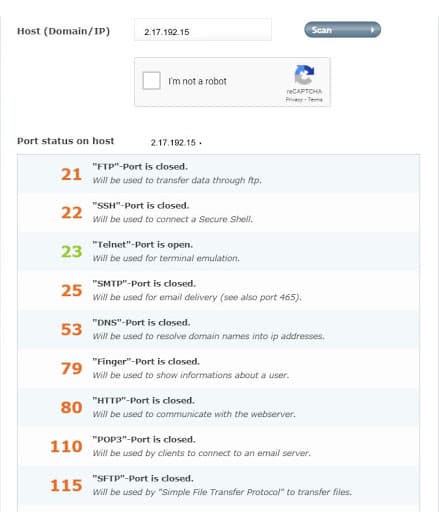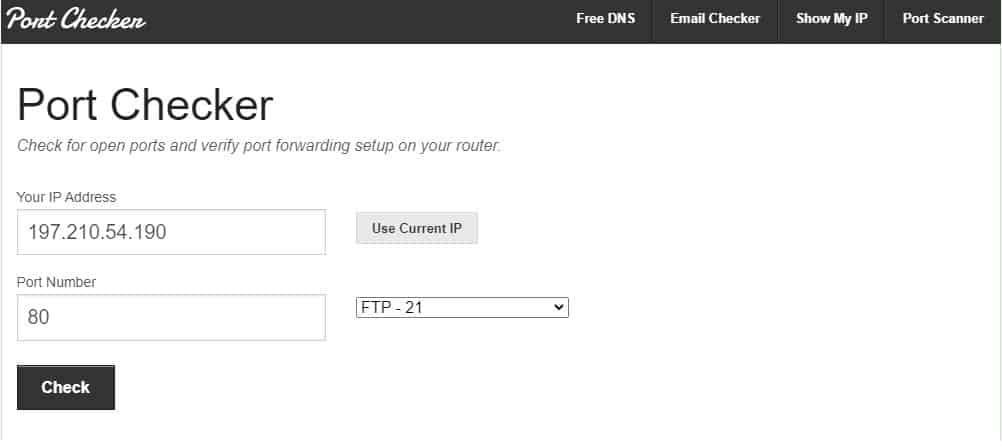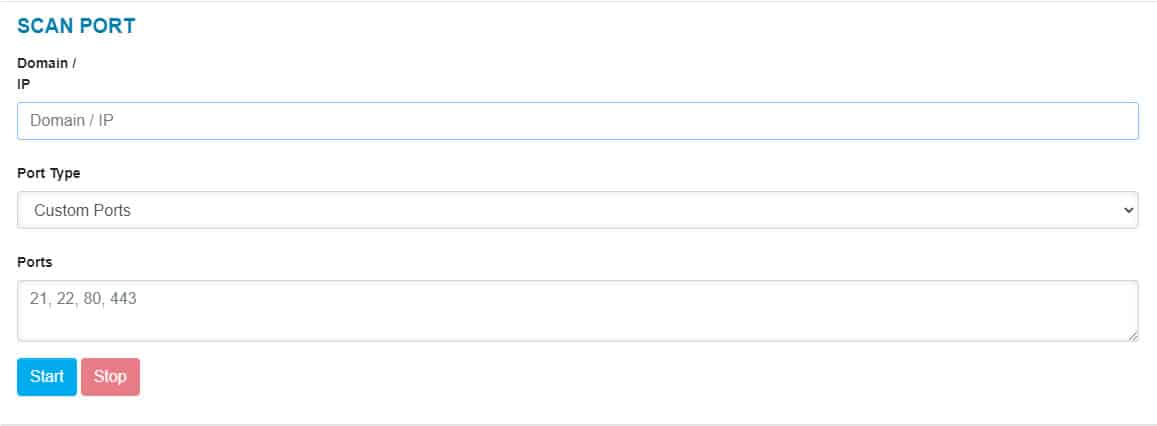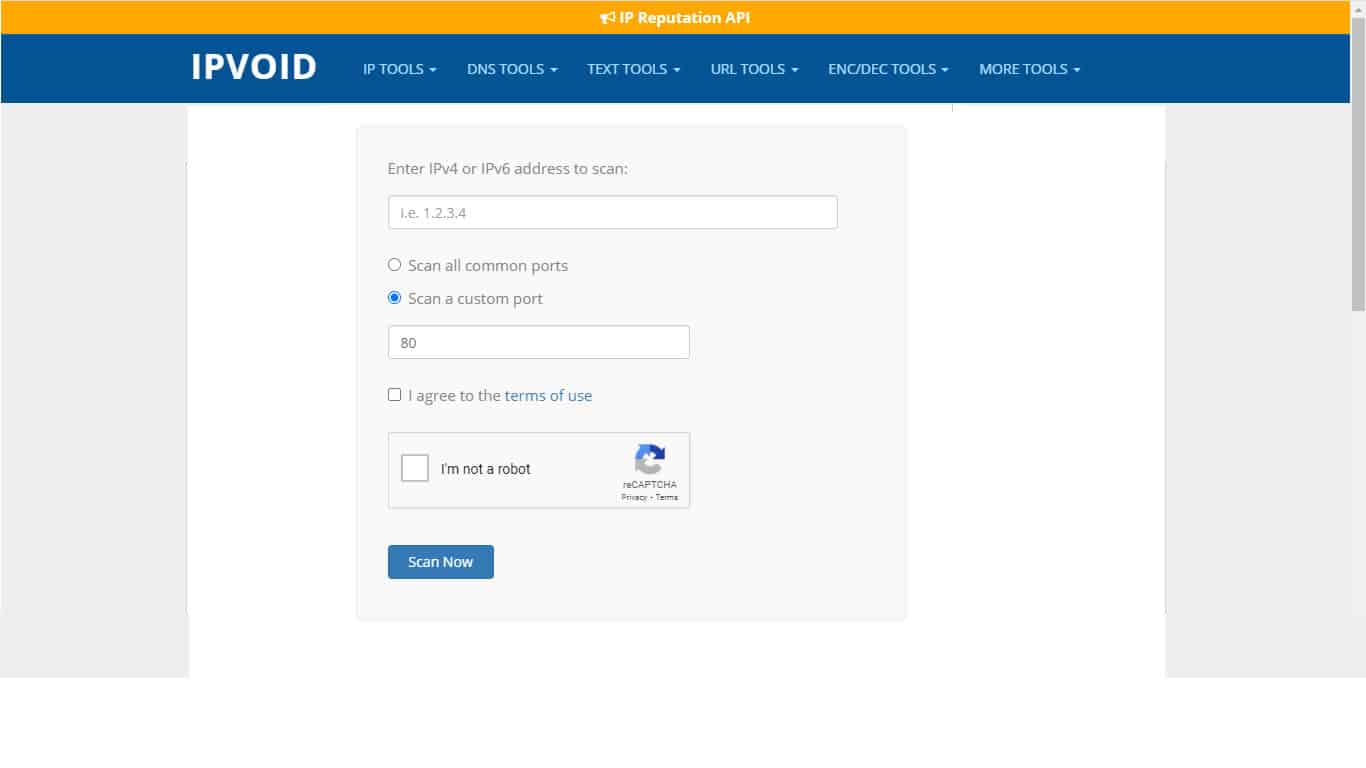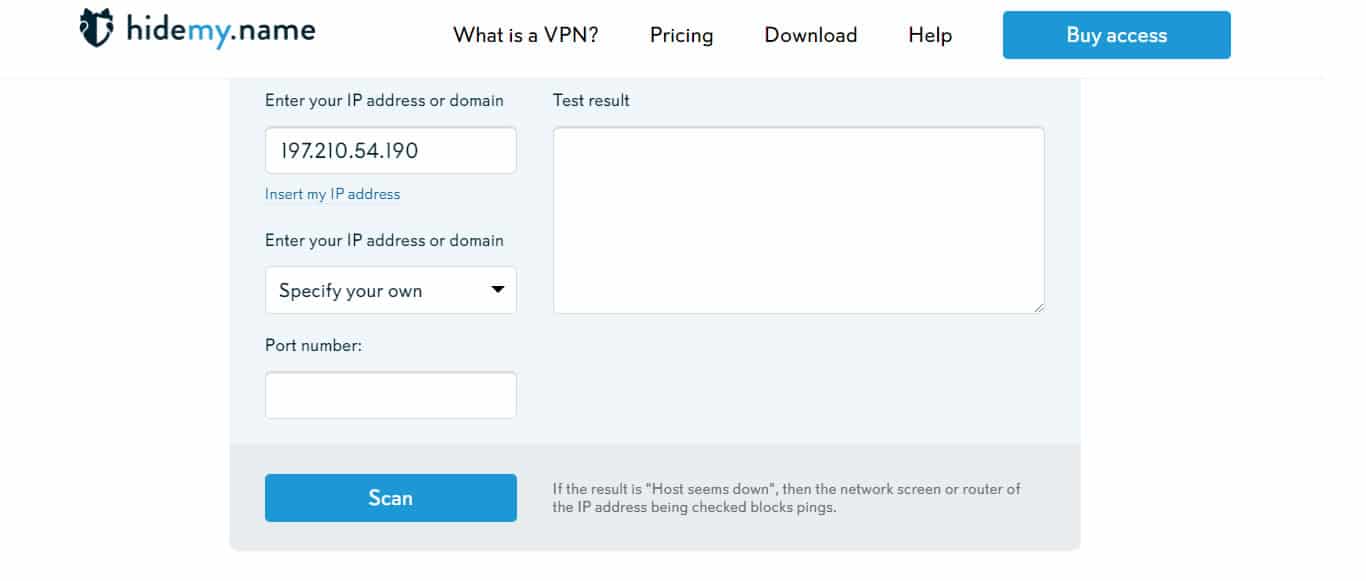In computer networking, a port serves as a communication endpoint where information is both sent and received between devices over a network. While the word “port” can refer to a physical socket on a computer or network device, in this instance, the word refers to an address.
An IP address is equivalent to the street address of a building and the port number would equate to an apartment number. Port numbers are assigned to specific protocols and then there is a wide range of unassigned numbers that developers can use for their own purposes.
The various services that run on a device, such as web servers, email servers, or file-sharing services, can be compared to the “traffic” that arrives at a computer’s network card. The port number is actually a tag. A service within a computer will have a circular program, called a daemon, that just checks for the arrival of data packets with a specific port number on it. That data is then forwarded to the appropriate software on the computer for processing. That demon is referred to as a “listening port” – it is also regarded as an “open port”.
Certain ports are reserved by default for specific services. For example, when a service listens on a particular port, it can receive incoming data from a client application, process that data, and send a response back to the client. A common example is the Simple Mail Transfer Protocol (SMTP), which is used for sending emails. By default, SMTP operates on ports 25, 465, and 587. If any of these ports are found to be open on a server, it indicates that the SMTP service is running or could be configured to run on that machine.
Understanding which ports are open on a networked device is crucial for both network management and security. By identifying the open ports, network administrators can determine which services are active and monitor for any potential vulnerabilities or unauthorized access.
Here is our list of the Best Online Port Scanners:
- NMap Port Scanner EDITOR’S CHOICE This website implements the well-known Nmap tool from its Web location and offers free and paid accounts. Paid users can run scans continuously and probe their network devices as well as internet-facing gateways.
- DNS Tools A popular free online service that offers a collection of network analysis tools such as port scanners, DNS Query, Traceroute, Ping, among others.
- WhatIsMyIp A popular online service that provides a free and commercial port scanning tool.
- Port Checker Α simple and free online tool for checking open ports on your device.
- DNS Checker Α website that hosts a collection of tools such as DNS check tools, email tools, IP tools, developer tools, network tools–which also includes a port scanner.
- IPVoid Α free service developed by the NoVirusThanks project whose mission it says is to “provide useful tools to troubleshoot network problems and to help in gathering information about IP addresses”.
- Hidemy.Name This is a VPN service and you can explore that service on its website, which also offers free tools, such as a port scanner.
Why should I scan the ports on my network?
Port scanning is the method used for identifying what ports are open on a target system or network, and the services running on them. It is one of the most popular techniques used by attackers to identify “open doors” on a computer and learn about services that they can exploit in order to gain unauthorized access to the system or network. Once privileged access is obtained, the intruder can carry out malicious acts. For example, SSH normally uses port 22. So if an attacker finds that port open and listening, he knows that SSH is probably enabled on the machine. He can then try to penetrate the system by attempting to bypass or crack the login password.
This is why network administrators and security managers need to carry out regular port scans on their systems and networks to discover and mitigate possible security vulnerabilities associated with the open ports. Knowing which network services are exposed to the outside world is essential for securing the network perimeter. Having more ports open than necessary is considered a security risk, and should be urgently addressed. Port scanning will help you answer key questions such as, what ports are open? And what services and their versions are running on the open ports? You can then use the information to determine if the open ports meet with your organization’s security policy.
Why use an online port scanner?
There are lots of port-scanning applications out there that you can use to scan your network. Some have to be locally installed on the target machine, while others are delivered online.
The main advantage of using an online version of a port scanner as against using it on your local machine is that it gives you an external view of your systems as they are seen by an attacker from the Internet. If you do the same scan from your local network you may obtain different results because of various network firewall restrictions.
In this article, we’re going to review the eight best online port scanning applications out there. Hopefully, this will guide you in the process of selecting the right one for your port scanning needs.
The Best Online Port Scanners
Our methodology for selecting online port scanners
We reviewed the market for websites that offer port scanning and analyzed the options based on the following criteria:
- A reliable website that isn’t a hacker scam
- A system that will test internet-facing ports on company routers
- The option to set up an account and run continuous scanning
- A service that includes availability testing
- An easy-to-read report that identifies open ports
- A free service or a paid tool that offers a free version for assessment
- An online port scanner that provides value for money either because it is free or because it offers extra services that free tools don’t provide
1. NMap Port Scanner
NMap port scanner is a well-known free and open-source online tool for finding open TCP ports and running services (including their versions). The scanner allows you to easily map your network perimeter, check firewall rules and verify if your services are reachable from the Internet. NMap port scanner is part of a collection of scan services known as NMap Online.
This website’s mechanisms are based on the well-known Nmap service, as are many of similar online port scanners.
Key Features:
- Easy to Access: Enter an IP address in a Web page
- Quick External Scan: You don’t need to set up an account
- Scheduled Option: Sign up for an account for this feature
- Recursive Test in Paid Account: Keep an eye on your network security
- Internal Network Scan with Paid Account: Set up permissions to bypass network security
Why do we recommend it?
The NMap Port Scanner is a website that runs Nmap commands and then posts the results. The Nmap system has lots of options, which makes it a very powerful tool but it also means it takes time to learn. This utility narrows down the options and makes Nmap easy to use.
In order to determine if a TCP port is open, Nmap sends packets to the target device and analyzes the responses. It does this by taking advantage of the three-way TCP handshake mechanism—SYN, SYN-ACK, and ACK. Once open ports are found, it goes further to determine the exact type of service (including its version) running on that port.
Who is it recommended for?
Anyone can use this tool. The free version doesn’t require you to set up an account but also it doesn’t give you any privacy, so businesses are advised to upgrade to the paid version, which is very cheap. The original Nmap is available elsewhere for anyone to use for free in private.
Pros:
- Set up a Range of Ports: Provides a port scan of any internet-facing device
- Public Results: Publishes scan results on the website
- Confidential Results: Scans for paid accounts can be kept private
- Nmap Guide: Section explaining the original Nmap command
- Port Range Options: Scan well-known ports or all ports
Cons:
- Runs the Original Nmap: Not affiliated with the owners of the Nmap security scanner
Nmap evolved from a simple port scanner to a robust tool containing advanced fingerprinting capabilities and a complex scripting engine. It now provides a number of features for probing computer networks, including host discovery and OS fingerprinting. These features are extensible by scripts that provide more advanced service detection, vulnerability detection, and other features.
EDITOR'S CHOICE
The Nmap Port Scanner from Nmap Online is our top pick for an online port scanner because it offers a quick scan that anyone can get immediately by entering an address in the website, it also enables you to set up an account to store results, and it is also available as a paid service with more sophisticated features. The online port scanner provides external scanning and publishes the results. You don’t need to own the network that the scan targets. You need to get a paid account to keep your scan results private and use options such as internal port scanning.
OS: Web based
2. DNS Tools
DNS Tools is a popular free online service that offers a collection of network analysis tools such as port scanners, DNS Query, Traceroute, Ping, among others.
Key Features:
- Easy-to-Read Results: Provides a straightforward port list
- Port Shortlist: Scans the most important ports
- Other Connection Tests Available: DNS query, Traceroute, and Ping
- On-Demand Scans: No scheduler
Why do we recommend it?
DNS Tools is a useful website to go to for internet and Web addressing issue testing. The site isn’t limited to DNS checks. The service is good for quick external tests on connection performance with Ping and TraceRoute and then deeper dives with its DNS tester and port scanner.
DNS Tools can help you answer the questions such as:
- What’s the IP address I am connected to on the Internet?
- Is my computer reachable from the outside through open ports?
- Over which nodes does the connection travel?
- How is the response time of the server?
Who is it recommended for?
This website is a good reference tool for external probing. It is useful for network administrators, Webmasters, penetration testers, private individuals, and hackers. The site has a number of reconnaissance tools as well as troubleshooting utilities. It can be used by anyone to test any server or gateway.
Pros:
- Completely Free Service: There is no paid version
- Simple to Use: Great for quick scans and non-technical users
- Web Interface: Offers testing through a GUI
- Handy Utilities: Includes a collection of testing tools
Cons:
- Just Quick, On-Demand Tests: Advanced users might want more testing features
With DNS Tools port scanner, you can determine which ports or services running on your network or device are reachable outside of your local network. You can do this for multiple ports or single ports. A single port can be verified by using the following format: 208.80.152.2:4444 (the port is separated from the IP address by a colon).
3. WhatIsMyIp
WhatIsMyIp is a popular online service that provides a free and commercial port scanning tool.
Key Features:
- Free Option: A subscription is also available
- On-Demand Scans: Accessed through a Web page
- Capacity Options: Scan one or many ports
Why do we recommend it?
WhatIsMyIp is a well-known and widely-used site for a quick check on what a user’s IP address is – this is useful for checking that a VPN is working. The site also provides some basic troubleshooting tools, which include a port scanner. The service will only perform external scans.
It also provides other tools (free and commercial) that allow users to perform network lookups such as IP address lookup, DNS lookup, Whois lookup, and more.
Who is it recommended for?
You can use the system for free without registering to get basic port scans or pay for a more comprehensive service. The free service lets you probe one port or a choice of lists of ports that are frequently used for specific types of services, such as gaming. This tool is designed for use by the general public.
Pros:
- External Test Launch Location: Great for remote troubleshooting to assist end users
- Simple Interface: Straightforward troubleshooting solutions
- Includes a Collection of Other Tools: Such as traceroute and reverse lookups
Cons:
- Not Many Options: Advanced users might want more testing features
WhatIsMyIp port scanner scans your network for open ports. If a port is displayed as open, that means it is open for remote communication and needs to be closed. To use this tool, go to the port scanning section of the site and enter a valid IP address at the top of the page as shown in Figure 3.0. Then select your preferred port scan option and enter the port number(s) as the case may be to begin. Details of the various port scan options are as shown in Table 1.0 below:
| Port Scan Options | Description | How To | Availability |
|---|---|---|---|
| Individual | Scan individual ports one at a time | Select 'individual', enter a valid port number, then click the 'Scan' button to begin. | Free |
| Package | Scan based on pre-made packages and ports contained in the selected package will then be displayed below the dropdown | Select 'Package' and choose a package from the drop-down menu, then click the 'Scan' button to begin. | Free |
| Range | Scan based on a numeric range of port numbers | Select 'Range', and enter a valid starting and ending port number, then click the 'Scan' button to begin. | Gold members |
| Custom | Scan based on your own peculiar needs | Select 'Custom', and enter each desired port to scan on its own line in the text box, then click the 'Scan' button to begin. | Gold members |
4. Port Checker
Port Checker is a simple and free online tool for checking open ports on your device.
Key Features:
- Quick Test: Single port check
- On-Demand: No scheduled testing option
- No Account Required: Users can stay anonymous
Why do we recommend it?
Port Checker is a straightforward free service that is delivered on a website. You can check one port at a time on the home page or go to the Port Scanner page and get a scan of the 21 most frequently used ports. The site has other useful tools.
It is a useful tool for testing port forwarding settings on a router, for diagnosing issues with blocked application ports by your firewall or ISP, and for many other security purposes.
Who is it recommended for?
This service is aimed at members of the public that have a deeper need to understand internet performance issues than the general population. This includes people who get involved in online gaming and file sharing. Business users might try the site for ad hoc queries.
Pros:
- As Simple as it Gets: No technical skills needed
- Completely Free: There is no paid version
- Ideal for Quick Checks: Very basic troubleshooting
Cons:
- Lacks Advanced Scanning Capabilities: Just for quick checks
Furthermore, if you host and play online games, this online port scanner could be used to ensure that the relevant server port is configured properly for port forwarding so that only allowed participants would be able to connect to your server.
5. DNS Checker
DNS Checker is a website that hosts a collection of tools such as DNS check tools, email tools, IP tools, developer tools, network tools–which also includes a port scanner, among others.
Key Features:
- Scan Multiple Ports: Pick a range or enter a non-sequential list
- On-Demand Scans: No scheduler
- Other Network Tests Available: DNS query, Ping, Traceroute, Whois, and more
Why do we recommend it?
DNS Checker is a similar site to the DNS Tools website. It offers a number of useful tools for use by the general public for free without needing to set up an account. The system provides lists of ports regularly need for specific activities but you can manually enter your own list.
Who is it recommended for?
This tool is useful for members of the public who have an interest in identifying communication problems or improving their system security. It can also be used by businesses for ad-hoc testing. As it probes ports, it is also a useful reconnaissance tool for penetration testers and hackers.
Pros:
- Includes a Host of Tools: The site has a long list of free tools
- Check Most Common Ports Versus All Possible Ports: You can also specify your own list
- Ideal for Quick Tests: Not a continuous monitoring system
Cons:
- Not Ideal for Long-Term Testing: You will need a continuous tester
The DNS Checker port scanner checks the most common ports used by Windows services, Ubuntu servers, online games, or other software. With its pre-defined list of all available used ports, you can easily use this tool to check which ports are open on your network or device by simply entering your IP address or domain name. It also allows you to define custom ports for checking if they are open for external requests, so as to prevent any external attacks on your IP.
6. IPVoid
IPVoid is a free service developed by the NoVirusThanks project whose mission it says is to “provide useful tools to troubleshoot network problems and to help in gathering information about IP addresses”.
Key Features:
- Scan a Single Port: Enter a port number
- Scan Well-Known Ports: Automatically selected
- Uses Nmap: Runs on a cloud server
Why do we recommend it?
The IPVoid site has a lot of useful tools for Webmasters, particularly its IP Blacklist Checker, which is a pretty unique utility. However, for the purpose of this review, we are looking at the Port Scanner, which is actually two services, one for TCP and one for UDP.
It started out as an IP blacklist checker service but later expanded its services to include more IP and network tools to make it more valuable to Internet users, researchers, and system administrators.
Who is it recommended for?
These two scanners are on-demand services, so they are good for use by the general public and the owner-managers of small websites. Large eCommerce sites would probably use continuous testing synthetic monitoring services. Anyone who runs a small business would profit from exploring all of the free utilities on this site.
Pros:
- Essentially a GUI Version of Nmap: But only the port scanning part
- Includes IP Blacklist Checking: Plus a TLS checker
- Ideal for the Beginning of Troubleshooting Tasks: Not for detailed investigations
Cons:
- Better Suited for Administrators: Not of interest to the general public
The IPVoid port scanner is a TCP port scanner powered by Nmap. With this tool, you can scan an IP address for open ports, check what services are running on your server such as apache, mail, ssh, FTP, MySQL, telnet, DNS, test if your firewall is working correctly, and view open TCP ports. All it takes is to enter your IP address and choose either to scan all common ports or a custom port.
7. Hidemy.Name Port Scanner
Hidemy.Name is a VPN service. The website for the service provides a collection of online tools and services such as proxy checker, anonymity checker, email checker, port scanner, and a host of others.
Key Features:
- Enter a Domain Name or IP Address: The system can detect your IP address and insert it
- Scans Performed with Nmap: Choose to scan popular port or enter a list
- On-Demand: No scheduled option
Why do we recommend it?
Hidemy.Name provides a number of useful tools on its website and you don’t need to be a client of the VPN service to use them. You can get a preset list of ports to scan or enter your own series. Explore the other tools on the site as well.
Who is it recommended for?
You don’t have to be the owner of the IP address that you enter for the scan because this is an external scan. The primary target market for these tools is the general public. This is a free service to the public that will raise the VPN system’s profile.
Pros:
- Port Scanning: Also proxy checkers and other tools
- Simple and Easy to Use: Takes a couple of clicks
- Great for Testing your Own Networks: Scans from an external viewpoint
Cons:
- Fairly Barebones: Falls over before delivering a report
Hidemy.Name Port Scanner is also powered by NMap and can be used to discover ports that are open on your computer or server, and what services they are running and are responsible for. To check your computer or network, click the “insert my IP address” button next to the scanner form to automatically pick up your IP. Then choose either to scan popular ports or specify your own list of ports. If the result says “Host seems down”, this implies that the network device of the IP address being checked blocks the ping command. However, you are advised not to use this tool to scan servers that do not belong to you.
Conclusion
Using the above online port scanners will help you find open ports on your domain or network. Those online services are easy to use and mostly targeted at SMBs that can’t afford to pay for consultants or external services to monitor their security from outside of the network.
However, please note that if your network or domain is behind a cloud proxy such as Cloudflare or SUCURI, then it may not give you accurate information. As you can see from the reviews, the NMap tool stands out among the rest. If you are looking to learn more about it, check out this definitive NMap guide. If the online tools don’t work for you, you may check out these locally installable port scanning tools.



